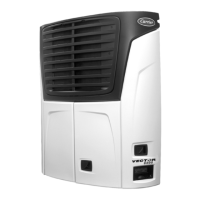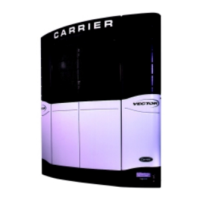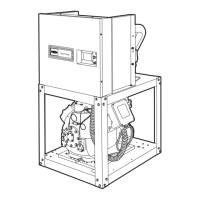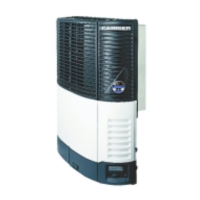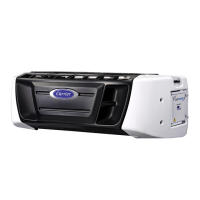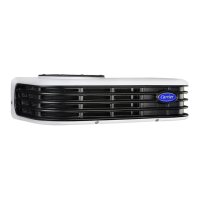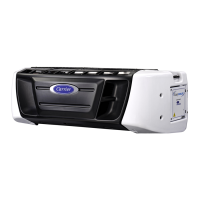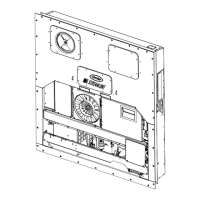62-61753-21
35 CHECK STARTER CIRCUIT
TRIGGER-ON: Engine speed fails to reach 50 RPM during 2 start attempts.
UNIT CONTROL: Engine operation: engine and unit shutdown and alarm.
Standby operation: this alarm will not activate in standby operation.
RESET CONDITION: Change unit to standby operation or alarm may be manually reset via keypad or
by turning the unit off, then back on again.
NOTE: Follow the steps below until a problem is found. Once a repair or correction has been made, clear the
alarm(s). (Refer to Note 1 Page 7-1) Operate the unit through the appropriate modes to see if any active alarm
occurs. Continue with the steps below as necessary.
Check That Engine Has Actually Started
a. Check that engine starts, runs for a
few seconds then shuts off.
If NO, continue with Step 2 below.
If YES, check sensor and wiring. Refer to Section
8.4.12
Check Starter Relay Circuit
a. Check operation of starter solenoid
relay.
Energize Circuit. (Refer to Note 2 Page 7.2.)
Relay contacts closed when SSR is grounded.
b. Check relay socket and terminals.
No signs of discoloration from overheating.
No corrosion.
c. Check voltage to starter solenoid
relay.
Negative lead on 85, Positive lead on 86 = 12 VDC.
Negative lead on Gnd, Positive lead on 87 & 30 =
12 VDC.
d. Inspect wiring to starter solenoid
and starter motor.
No physical damage to wiring or battery cable end.
No damaged or corroded terminals.
e. Check voltage to starter solenoid.
a. Inspect starter and wiring.
No damage or corrosion.
Wiring and battery cable must be clean and tight
b. Check resistance of starter motor.
c. Check amperage draw of starter.
a. Inspect battery cable ends and
posts.
Must be clean and tight.
No corrosion.
b. Test voltage at battery with unit off.
c. Test specific gravity of battery.
d. Perform load test on battery.
(Follow battery manufacturer’s procedure and guide-
lines.)
Check For Correct Engine Oil
a. Check for correct oil viscosity
(weight) for conditions.
Refer to Section 2.8.
Must be correct for ambient conditions.
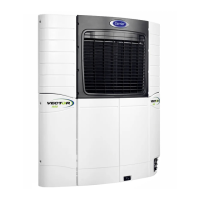
